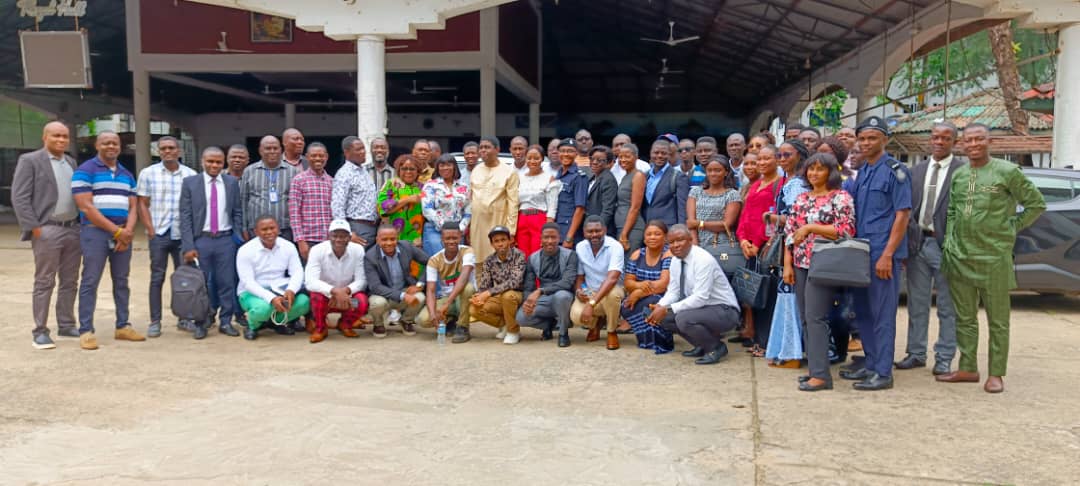The Right to Access Information Commission (RAIC) has trained the first set of pilot government ministries, departments and agencies on digital access to information to bring them to speed in understanding the new unprecedented digital access to information infrastructure created by the Commission to expedite information request and processing in accordance with the RAI Act 2013 and RAI Regulations 2022.
The training of trainers workshop with pilot ministries, departments and agencies on the Use of Freedom of Information (FOI) Digital Platforms took place on Thursday, 31st October, 2024, at the Family Kingdom Resort, Aberdeen, Freetown.
In his welcome and opening statement, Dr. Ibrahim Seaga Shaw, the Chairman and Information Commissioner of RAIC, gave the background of digital access to information infrastructure, explaining the benefits of the development.

“The idea came from the International Day for Universal Access to Information (IDUAI) conference in 2023 organized by UNESCO at the Oxford University on the theme: ‘the importance of the online space for access to information’. I got the inspiration from that conference and committed myself to creating and implementing a digitalized system for requesting, processing and accessing information as a more viable alternative to the paper-based or manual means,” he explained.
The RAIC’s Chairman and Information Commissioner said the Commission deemed it fit to digitalize the four forms in the access to information process, that is, Form A (Request Form), Form B (Acknowledgement Form), Form C (Response Form) and Form D (Complaint Form).
He noted that: “We first organized the forms in word document and PDF formats and uploaded them on our website. But we noted it was not much efficient and speedy, so we decided to engage another developer to put the forms in real time or automated format so that the process can be more efficient and speedy.”
Dr. Shaw reiterated that the current digital platform will ease the burden of using the paper-based system, but the RAIC boss was quick to inform participants that the digital platform is an alternative to the paper based system, saying the paper-based or manual format has not been discarded; while he encouraged participants to use the knowledge gained to train other persons responsible to facilitate access to information in the various public institutions.
Dr Shaw added that the purpose of the training was for those trained to be ambassadors of the development by cascading the knowledge gained and lessons learnt to their colleague workers, especially those who handle and process information requests.
The Executive Secretary of the RAIC, Hon Mustapha Braima emphasized the position of the Commission and called on participants to use the knowledge they would get from the workshop to improve on the way and time it takes for them to respond to information requests made by members of the public.
Representing the Minister of Information and Civic Education, Emmanuel Turay – the Director of Information at the ministry, praised the leadership of RAIC for such development, noting that his ministry is committed to supporting the Commission in executing its mandate of facilitating access to information in the country.
“We are still recruiting information officers to liaise between the public and their institutions. I encourage you all to exemplify the knowledge gained here to improve and expedite access to information in your institutions,” he encouraged. In a PowerPoint presentation, Isaiah Abdul Mansaray, the developer of the digital infrastructure, displayed the FOI Forms with a clear step-by-step tutorial on how they work. Participants were divided into four groups representing the four forms. Repeated testing was done and suggestions made to perfect the system.

